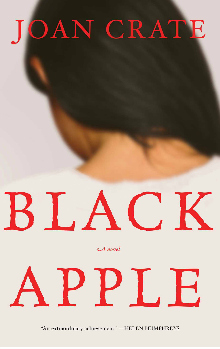Thank you very much to Simon & Schuster Canada for reaching out and asking if we wanted to read Black Apple. This was an excellent read. It is a wonderfully layered read, with plenty to unpack and think about when reading and still upon completion.
Here is a partial description: Set during the Second World War and the 1950s, Black Apple is an unforgettable, vividly rendered novel about two very different women whose worlds collide: an irrepressible young Blackfoot girl whose spirit cannot be destroyed, and an aging yet powerful nun who increasingly doubts the value of her life. It captures brilliantly the strange mix of cruelty and compassion in the residential schools, where young children are forbidden to speak their own languages and given Christian names.
So, when reading, that does come across very clearly, this “strange mix of cruelty and compassion”. The whole story is written about so well since it gave us two strong and very different points of view – one of Rose Marie, or Sinopaki, and the other of Mother Grace.
The story is told in the voices of these two characters. First is Rose Marie’s (Sinopaki) viewpoint, and we are taken on her journey through the residential school system – her confusion, hurt, anger and sorrow at being torn away from her family, expected to sit still for hours on end in class, after enjoying a life of free reign and more of one enjoyed out of doors, not being able to use their real names, speak in their language, and to adopt the ways of the residential school fully and without question. There was great penalty if not done correctly, and all of this is written about very well. It’s very emotional and the journey of Rose Marie from a very young girl to young adulthood, all inside the walls of the residential school system was very compelling reading.
But, there is also Mother Grace. I really liked the character of Mother Grace. I liked that shift in viewpoint and her character was the one to show some compassion inside the residential schools and showed more concern and liberalism by allowing parents to visit, for instance. Crate gave us a sympathetic and warm character in Mother Grace, a balance in perspective of the nuns that oversaw the girl’s schools. However, do not think at all that Crate has written a wholly sympathetic novel about the residential school system. No, no, there are many moments that did not shy away from showing the brutality, abuse, sexual abuse and suffering experienced by all those young girls inside the confines of the school. Sister Joan, for instance, is anything but a sympathetic and kindly character showing love and compassion to the girls. No, quite the opposite. The chilling, harrowing opposite.
Rose Marie also has the gift of a second sight. She is able to see the ghosts of girls past in the school, and one of the nuns and priests as well. She is visited at night by this young, wandering nun and it disrupts her sleep. She is visited each time by her parents just before their deaths and she also have a fiercely strong and close friendship with a girl named Anataki (Anne). Her friendship with Anataki makes for considerably heartwarming reading. Since Rose Marie’s home situation alters dramatically during her time at the school, she is forced to remain every summer and it is the summers that Mother Grace loves most of all. These are the times when she really takes Rose Marie under her wing, mentors her and wishes for her a life spent with God. Mother Grace arranges for Rose Marie to do 3 months of service in Black Apple before moving on to the school that will prepare her for a life with God. Rose Marie just accepts that this will be her life, her future.
In Black Apple, Rose Marie is confronted with so much that she has been shielded from in all the years spent within the confines of the residential school, and her special catechism classes with Mother Grace. Outside of the school, she realizes she is not considered first for her piety, but only in her skin tone and the looks of disdain from the community, including the priest she is to work under during her time in Black Apple. Here as well, two men become a part of her world – one white man, one Indian man that is persistent in wanting to claim Rose for himself. In Black Apple, Rose Marie begins to have visions from Anataki and searches and questions her purpose in life, where she belongs, what path for the future should she follow. The ending is a redemptive, if just a touch of the mysterious for Rose Marie’s future. Overall, this was an excellent read and with its many layers to unpack left me thinking about it long after finishing the final page. I’m very glad to have had the opportunity to read it.


